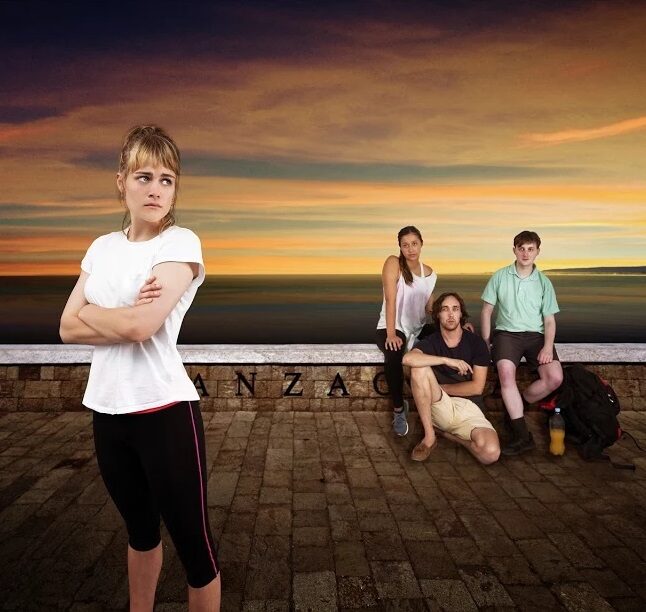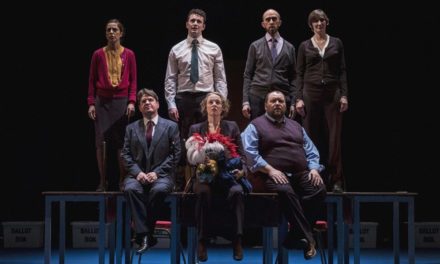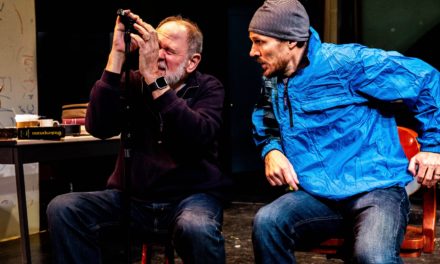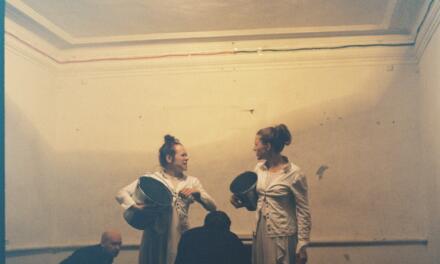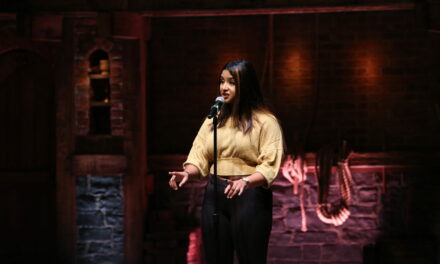“Afghanistan is exactly like Gallipoli!” shouts Ben, well into the action of Anzac Eve. “All the wars are like Gallipoli!” Opening in Wellington within hours of the launch of Hit & Run: The New Zealand SAS in Afghanistan and the meaning of honour, by Nicky Hagar and Jon Stephenson, this moment has particular resonance. Then and now, front line soldiers have little true understanding of who they are fighting and why, things inevitably go wrong, lives are needlessly lost … Warfare will never be the answer to the problems it sets out to solve.
For international readers: ANZAC stands for Australia New Zealand Army Corps. Mythology has it that both nations found their identities (separate from being British outposts) through the Gallipoli campaign in WW1 – which ‘the Allies’ lost. ANZAC Day (25 April) marks the anniversary of the landing at what is now called ANZAC Cove – a horribly botched operation that set the tone for a long and futile campaign that cost thousands of lives. For what?
Full disclosure: my mother’s father was killed at Ypres; his brother died at Anzac Cove; their older brother was gassed and a fourth brother returned physically intact but at the effect of who knows what unacknowledged traumas. Each Anzac Day provokes in me a deep-set anger at the shocking propaganda-fuelled waste of young lives and the psycho-social effects on the survivors and their families – and the obscene inhumanity continues, only to be comprehended because it fills the coffers of the Military-Industrial Complex and its shareholders.
Not that Anzac Eve confines itself to that viewpoint only. Whatever your family history is and wherever you stand on the politics of wars past and contemporary, there will be opinions and attitudes expressed that you will agree, disagree and wrestle with. This is part of the brilliance of Dave Armstrong’s script, superbly brought to life by four skilled actors directed by Jamie McCaskill.
By distilling the action to the dynamics of a chance encounter between two Kiwi twenty-something blokes and two young Aussie women, at ANZAC Cove – on what I assume is 24 April 2015, when thousands have made the pilgrimage to mark the centenary of the ANZAC landing at Gallipoli – Armstrong infuses the play with multiple dramatic drivers that neatly interweave disparate threads of human interaction that all relate to the coexistence of diverse specimens of humanity.
Ben (Barnaby Olsen), whose 300-page MA in History thesis was about the doomed Gallipoli conflict, is a seasoned counter-culture traveller who has been a volunteer teacher in Cambodia. Clearly a pacifist, he is sick of the oft-repeated myths surrounding Gallipoli and is quick to counter them with better-researched information, if anyone is prepared to listen.
Myths surround Phil (Hayden Frost) too, and the truth surfaces eventually. What is behind his try-hard manner and obsession with statistics also emerges. It’s another strength of the play that poignancy and pathos transcend the urge to judge this character harshly and laugh at him.
Following an initial battle-for-the-facts between the posturing boys, much fun with Aussie v Kiwi accents accompanies the arrival of Maia (Ruby Hansen) and Lizzie (Trae Te Wiki), who are quickly invited to squeeze into their spot by Phil. Perfectly captured, the powerful yet subtle dynamics of this close-quarters encounter brings an immediacy to the drama and inevitable comedy, as the conversation about where they are and why continues. They all have ancestral connections to the Gallipoli conflict
Maia presents as a determined adherent of the ‘our brave boys fighting for democracy’ party line which – along with her attitude to immigrants to Australia – quickly brings her into conflict with Ben. And it turns out there is much more to be understood about her and her family story.
Lizzie the Mozzie (Māori Australian) navigates the slings and arrows with entertaining alacrity, not least in response to Phil’s clumsy questioning of why Māori burst into song to perform hakas at the slightest opportunity.
The natural rhythm and flow of the largely sedentary action lay the ground for some extremely powerful moments. As for how it all turns out … you’ll have to see the play to find out and I urge you to, at BATS (until Saturday only!) or wherever it plays nationwide on the Tour-Makers itinerary.
It is astonishing that so much of value if packed into one hour. Everyone, including us, is changed by the experience. It all plays out on a Sean Coyle-designed contemporary camouflage stage cloth, which may also be read as a topographical approximation of the Gallipoli Peninsular.
While we are asked to accept the silent presence of hundreds of other ‘pilgrims’ at close quarters – only made evident as characters try to navigate a path to water or the Portaloos – the way Ben, Phil, Maia and Lizzie interact is totally credible as they banter, challenge, attack, defend, dispute, align and disband while discovering more about each other and deepening their understanding of humanity – as we do.
If only all the soldiers of all nationalities, camped out there 102 years ago, had been able to achieve the same level of ‘agree-to-disagree’ resolution … Anzac Eve is a profoundly insightful play that grows richer in my appreciation the more I think about it.
By Dave Armstrong
Directed by Jamie McCaskill
Producer: Armstrong Creative Ltd
Touring Nationwide with Tour-Makers
– – – – – – – – – – – – – – – –
Here is the link to my Radio New Zealand chat with Jesse Mulligan about Anzac Eve, preceded by mention of Theatreview’s new look and alignment with the PressPatron community funding platform.
This post was written by the author in their personal capacity.The opinions expressed in this article are the author’s own and do not reflect the view of The Theatre Times, their staff or collaborators.
This post was written by John Smythe.
The views expressed here belong to the author and do not necessarily reflect our views and opinions.

